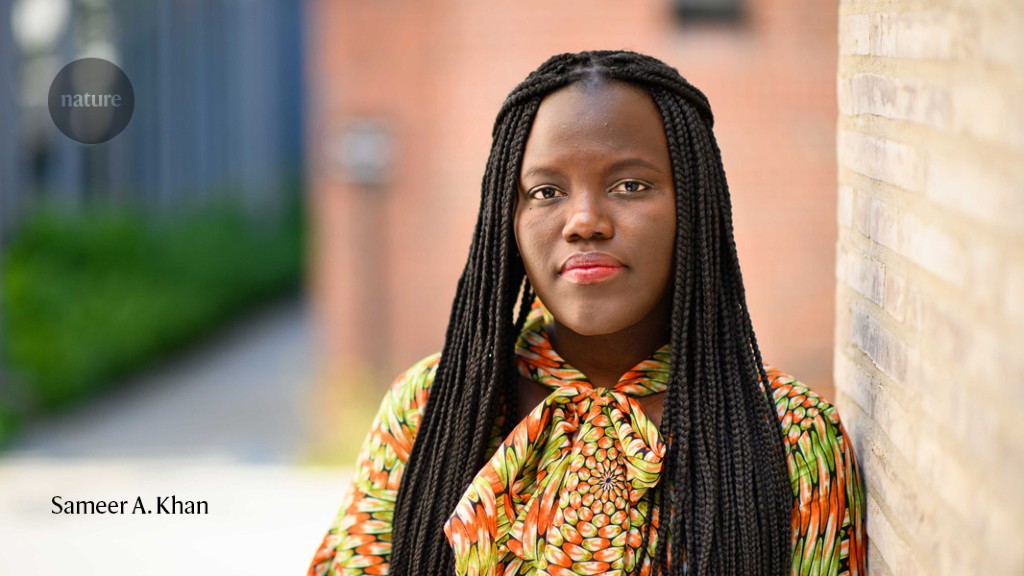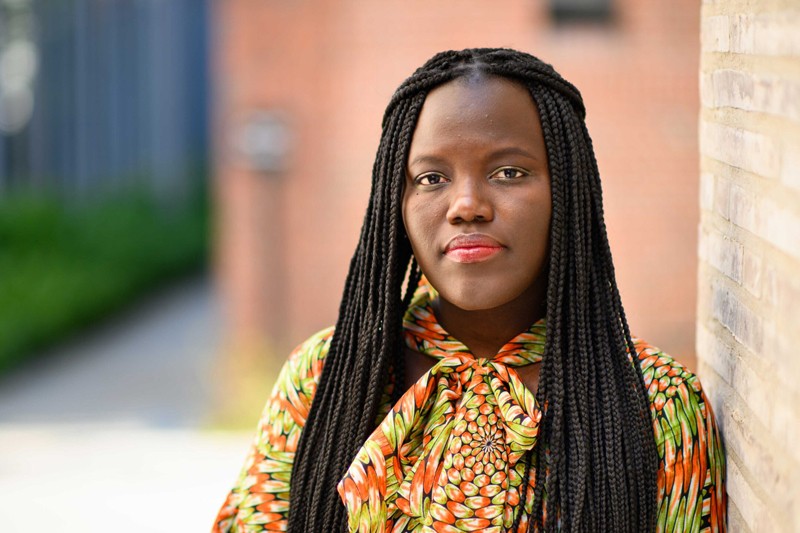I was born and raised in Senegal, in a family with 15 siblings. My mother didn’t finish secondary school and my dad didn’t go to school at all. He died at a young age. I don’t know what led my mother to push to send me and all of my siblings to school, but I thank her every day.
I was particularly drawn to STEM subjects, but I didn’t have anyone in my family who knew about careers in the field. In 2005, before my final year of secondary school, I went to a summer camp in Burkina Faso sponsored by the Pathfinder Foundation — an organization in Abidjan, Côte d’Ivoire, that promotes girls’ education in Africa. While there, I met its founder, Cheick Modibo Diarra, an African astrophysicist who worked at NASA.
After secondary school, I studied in France, eventually attending Télécom Paris, part of the Polytechnic Institute of Paris. Then I spent a year at Cornell University in Ithaca, New York, earning dual master’s degrees in engineering and applied statistics. After graduating in 2013, I worked in Washington DC as a junior professional associate in risk management at the World Bank, which lends money to low-income countries. But I left after a year; I felt that the impact of my work in Africa wasn’t tangible.
I was also hearing about machine learning and AI, and in 2014 I started a PhD in this field at Columbia University in New York City.
I finished in May 2020, and three days later I set up TAIK. My inspiration was the negative portrayal of Africa that I’ve experienced ever since I left Senegal. There’s this misconception, spread by the depictions in popular culture, that Africans are all unwell and poor and not capable of much. During the COVID-19 pandemic, I felt even more strongly that we Africans need to counteract that narrative.
I said, “Let’s tell these stories from our side.” I want people on the continent to be inspired by all the Africans doing amazing things in STEM around the world. This is what I would have wanted as a young person in Senegal — to know more about Africans’ contributions to STEM throughout history.
Wide scope
TAIK has three pillars. The Inspire pillar shares stories of Africans who have succeeded in STEM. The Inform pillar lets students know about what they can do with a STEM background. The Educate pillar tells African history — including science history — from an African perspective. We also run programmes to enrol children in schools across Africa and give them information about different fields of study, how to apply to university and graduate school, and how to find funding.
TAIK is for people of African descent everywhere. We want our content to be accessible, so our website is in Kiswahili, French, English and Arabic. At TAIK, we invest in pan-African optimism — we see a great future for Africa and its people. But we also have a pragmatic approach — we know the problems and the solutions that could work.
We want to see a world in which young Africans have the education and confidence they need to build their continent. You cannot look to the future if you don’t have grounded knowledge of where you come from. Some of the historical ‘facts’ we’ve been told are untrue. There are amazing women who fought colonialism in Africa, but we don’t get taught about them.
Last September, I started a research group at Princeton to study the ways in which AI can tackle problems in energy, climate science and health care. As I started this journey, I was thinking that all children deserve that same opportunity. So, last year, TAIK started an annual campaign in Senegal called Education Pour Tous, or Education For All, to go door-to-door in impoverished neighbourhoods to convince parents that kids, especially girls, need to be enrolled in school. There is sometimes a view that girls should not go to school, and many families don’t have the means to afford school fees and supplies, so we give out backpacks filled with notebooks, pens and pencils. In 2021, we partnered with a Senegalese community organization called Team Niintche and enrolled more than 1,100 children in primary school. We are raising money for this effort through the GoFundMe platform.
Shared mission
Many of TAIK’s volunteers are African scientists for whom our website resonates. They share similar stories of going through the world and not seeing themselves represented in the right way. When I ask them why they want to join TAIK, they say, “We want to change the narrative, we have great stories.”
Right now, TAIK has about 40 core volunteers and it’s hard work managing them, I’m not going to lie. There are challenges for those who are based in Africa: electricity outages, slow Internet connections and occasional language barriers. It’s not easy work, but it’s important work that should be done. We’re all in a virtual workplace on the online platform Slack, and everyone knows who’s doing what. It’s important that TAIK is run transparently: it gives people agency to take ownership and be drivers of the work.
For others who might want to start a non-profit body in Africa, one tip is to seek out great people who believe in the mission and have a good work ethic. We’re ambitious at TAIK, and we made sure early on that everyone knew the expectations. I have a ton of work already as an assistant professor, so if this were just for fun, I wouldn’t be doing it any more.
I’m fortunate to be able to give back through TAIK. We have a story on our website about a discovery made by a 13-year-old Tanzanian boy in 1963. The Mpemba effect, named after him, describes how boiling water freezes faster than water at a lower temperature. When we posted this story on Twitter, a Zimbabwean woman retweeted it with the comment: “I shared this article with my son and now he wants to do an experiment.” You never know who will read it and see themselves and know they can do it too.
This article has been edited for length and clarity.






More News
I study artefacts left in prehistoric caves
How artificial intelligence is helping to identify global inequalities
Tackling ‘wicked’ problems calls for engineers with social responsibility